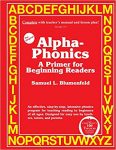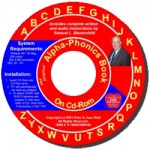
Lesson Students all need on Global Warming or Do They? What do you think?
With so many young Vermonters taking an active role in speaking out on issues related to climate change, perhaps lawmakers should take seriously a proposal that will be coming their way this session that would require school districts to offer lessons on climate change.
In neighboring New Hampshire, a bill up for consideration before that legislature would do just that.
The House bill would require at least 10 hours of climate education or a full semester of environmental education in high school, and anywhere from two hours to eight hours for younger students. It would take effect July 1, 2021.
“We need to have a common base of knowledge of what climate change is, how it works, how it happens, what we can do about it,” he said.
Climate change education varies across states, and often from one classroom to the next. Nationally, many teachers report that they shy away from the topic, not only because of issues with materials, but also the political sensitivities, and uncertainty over where to introduce an issue that crosses so many disciplines.
The bill focuses on causes and effects of climate change in New Hampshire and beyond; maximizing energy efficiency in homes and schools; information about careers in solar, wind, hydrogen power; and other topics.
 Now, many students and teachers are saying it’s time to put ideas on how schools should address climate change into practice.
Now, many students and teachers are saying it’s time to put ideas on how schools should address climate change into practice.
Climate change falls under the core ideas for middle and high school students in the Next Generation Science Standards, new standards adopted by the state in 2013. Environmental Principles and Concepts are also included in the California Science Framework, which provides guidance for teachers on how to implement the new science standards. These principles cover broad topics such as how humans depend on and influence natural systems and by law must be integrated into state-recommended textbooks and instructional materials.
Schools are encouraged to teach environmental literacy, which by definition includes climate change, according to state law. The Education Code does not mandate that schools teach it, however. But because climate change is in the state standards, and California’s state science test is aligned to those standards, climate change could appear on the statewide science assessment.
Internationally, it has happened as well.
The Italian government announced in November that, starting in 2020, it will become the world’s first country to institute a mandatory course on climate change and sustainable  development in all public schools.
development in all public schools.
Other subjects, such as geography, math and physics, will also incorporate in a sustainable development lens.
It makes sense, and it’s an idea that should be adopted here in Vermont. We are a small enough state — and progressively minded — that it could be implemented easily.
 Education is an essential element of the global response to climate change. It helps young people understand and address the impact of global warming, encourages changes in their attitudes and behavior and helps them adapt to climate change-related trends.
Education is an essential element of the global response to climate change. It helps young people understand and address the impact of global warming, encourages changes in their attitudes and behavior and helps them adapt to climate change-related trends.
We need to emphasize the importance of these standards and the impact of climate change more broadly.
They are the kind of lessons that need to be learned.
If you are thinking of teaching your OWN Children to read please consider our ALPHA-PHONICS systematic phonics reading instruction program. It has been used by Parents for over 36 years to successfully teach their OWN children to become excellent readers…..easily and in a relatively short time period. Find out about it below:

 Alpha-Phonics
Alpha-Phonics The Alphabet Song!
The Alphabet Song! Water on the Floor
Water on the Floor Alpha-Phonics the Book on CD Rom
Alpha-Phonics the Book on CD Rom Blumenfeld Oral Reading Assessment Test
Blumenfeld Oral Reading Assessment Test How To Tutor
How To Tutor How To Tutor Cursive Handwriting Workbook
How To Tutor Cursive Handwriting Workbook